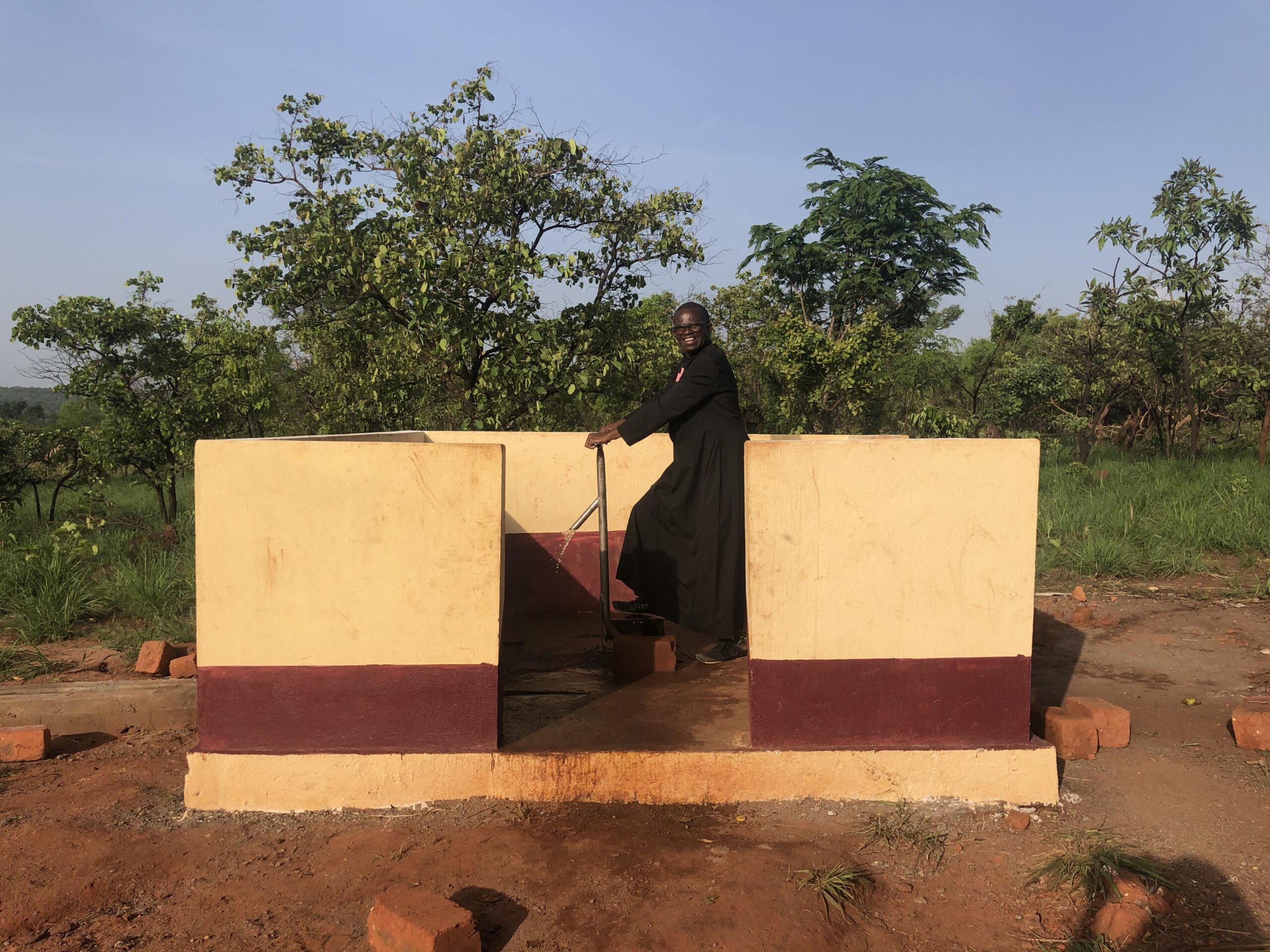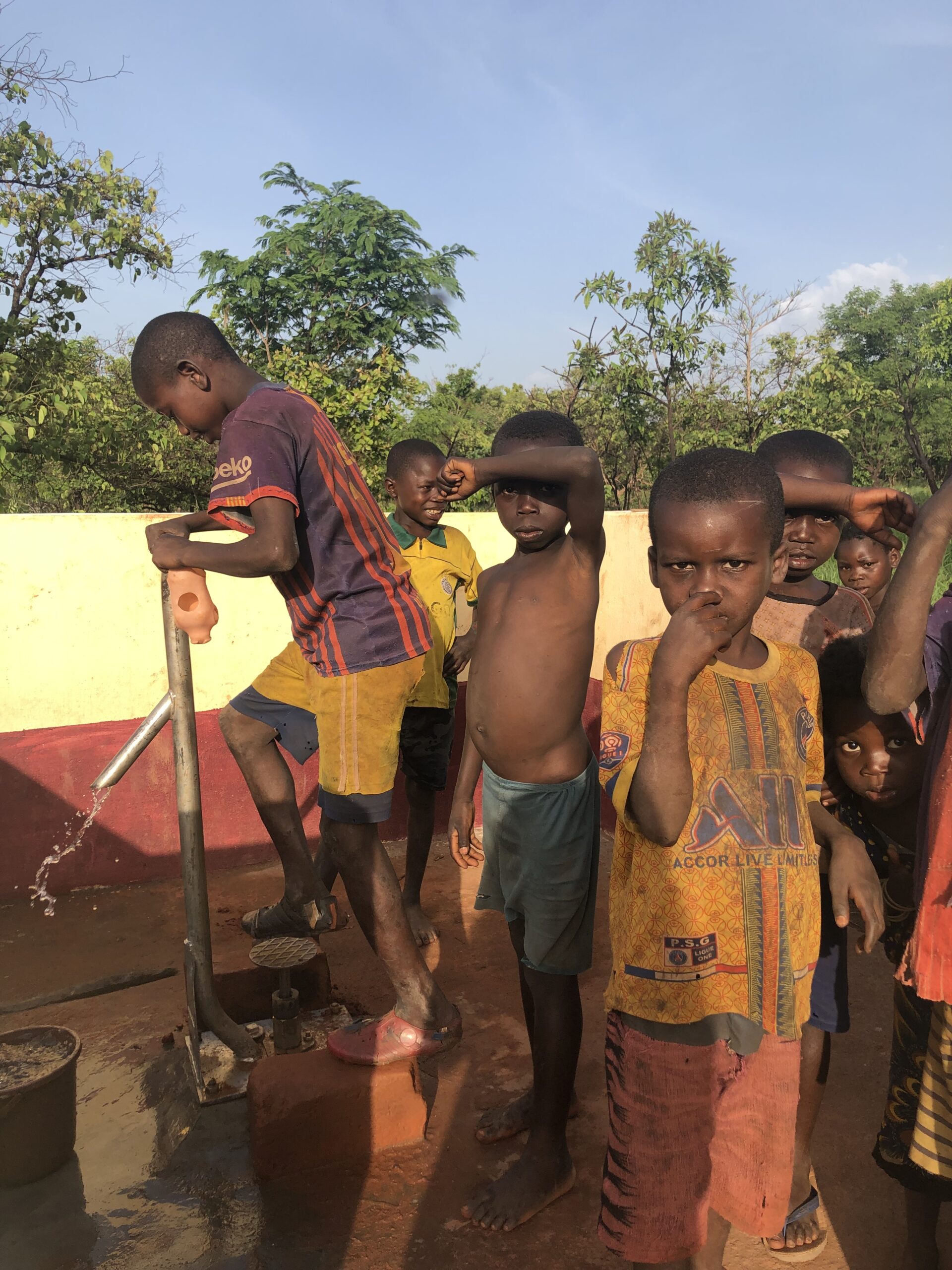- Piazza della Maddalena 53 - 00186, Roma
- Tel. +39.06 899 28 151-2-3-4
- info@salutesviluppo.org
FIRST AID, MEDICAL AND NUTRITIONAL ASSISTANCE: PROGRESS AT BOSSEMPTÉLÉ
The Health and Nutrition Project for the Vulnerable Population of the Sub-Prefecture of Bossemptélé is part of the ‘Emergency Initiative to Support the Vulnerable Population in Central African Republic’ funded by the Italian Agency for Development Cooperation (AICS).
We get to know Bossemptélé better thanks to the numerous projects with which Salute e Sviluppo has been trying to improve the socio-sanitary status of the Central African sub-prefecture for more than 10 years now. The John Paul II Hospital is the symbol of the Camillian commitment in the area: for years it has been responsible for improving the sanitary conditions of the population, remaining a pillar of reference for local communities even when the upheavals inside the country have made complex the activities of many other structures.
Also for this project ses starts from the John Paul II Hospital: despite the improvements made with the previous interventions, still significant are the shortcomings found, first of all the lack of an emergency room. The only room used for initial reception is simultaneously used for outpatient visits. Hence the need to renew the structure to allow the proper division of the premises and the separation between services dedicated to ordinary consultation and the treatment of emergency patients. At the moment the works of the new reception area have reached 32% of construction,the old walls of the structure have been demolished and new ones are being erected.
Most patients arrive at the hospital in a state of severe malnutrition: clearly the lack of food is a serious problem that must be solved, but it is even more effective in patients who have to undergo therapy and who, in the absence of food, cannot take their medication properly. Very often hospital inmates come from neighboring villages and once in Bossemptélé can not afford to buy any basic necessities because of the higher prices of the city than the rural areas to which they belong.
To improve the nutritional conditions of patients, it was decided to build a kitchen adjacent to the hospital with the intention of providing daily at least two meals a day for each patient. In 5 months from the beginning of the project the structure was completed for 80%. Since last December, and until the construction of the kitchen is underway, meals are prepared in a temporary outdoor room. Up to now, more than 3000 patients and relatives of hospital patients have already been served, thus representing a great result for their general health.
Another deficiency at the John Paul II Hospital in Bossemptélé, which the project aims to remedy, is that the hospital’s medical staff are not sufficiently trained in certain specialist areas of medicine, including maternity and ophthalmology. Therefore, training courses by specialists from the capital Bangui were set up to make the staff more competent in providing specific care. Classes started in December and continue to take place with the participation of 38 health workers from the hospital.
The projects aimed at improving health and hygiene conditions are not only concentrated in the John Paul II hospital in Bossemptélé, which is indeed the most solid health centre, but are also spread throughout the neighbouring areas with specific solutions that allow the populations of the nearby villages to benefit from many treatments without having to make the journey to the hospital, which is far from easy.
In some villages there are so-called postes de santé, buildings that act as small medical centres, but which need to be upgraded and expanded in order to be operational. Thanks to the project, the renovation of the postes de santé in the villages of Gbawi, Bodangui and Bombalou has started and is now 38% complete. While in the village of Yangoro, the complete construction of a poste de santé is proceeding, now at about 45 % completion. In addition, for the correct compliance with hygiene rules – sanitary each of these principals needs a well in the immediate vicinity that ensures the supply of clean water. For this reason, hand-dug wells have been constructed in all the villages mentioned and are currently being tested.
In order to further expand the offer of adequate medical care, the mobile clinic service has been strengthened, responding to a need that had long been identified in the area of intervention. Rural and poorly connected areas, also without postes de santé, are reached on a rotating basis twice a week (Wednesdays and Saturdays) by hospital staff who perform consultations for all the villagers reached. The mobile clinic is fully functional, operating in territories deemed safe and bringing real benefit to the population. Its sole purpose is not to visit the population, but to be an integral part of a preventive action of education, information and communication on health and hygiene in rural communities. Very often common diseases can be easily avoided thanks to a greater knowledge and awareness of issues and behaviors related to hygiene and health, without resorting to popular practices and beliefs that continue to play a preponderant role in the life of the locals. In fact, the work of traditionally accredited carers/healers, using non-medical techniques, sometimes leads to serious complications and a marked deterioration in the health status of patients.
In order to prevent these practices, which are unfortunately still widespread, and to encourage correct referral to the hospital in case of need, monthly training sessions are held in the hospital meeting room on the last Saturday of each month to raise awareness of the issue among health workers in the postes de santé located in the villages and among the traditional healers themselves, with whom cooperation is increasingly intensifying.
The Health and Nutrition Project for the Vulnerable Population of the Sub-Prefecture of Bossemptélé is now halfway through its journey. Started at the end of September last year, the one-year project is proceeding as planned and is already bringing benefits to the local communities involved.
A hoped-for result, but not a foregone conclusion given the endemic difficulties of the area: both from the point of view of local security, which sometimes undermines the possibility of considerable and lasting results, and because of the poverty of the nation, which is still one of the poorest in the world.
Salute e Sviluppo, together with AICS, aims to bring this project to fruition and contribute to the real improvement of the living conditions of the local population, which continues to be afflicted by diseases that are easily treatable with the right means and the correct prevention. We will keep you updated on further developments and on all the small and large steps that will be taken in the interests of the Bossemptélé sub-prefecture.











